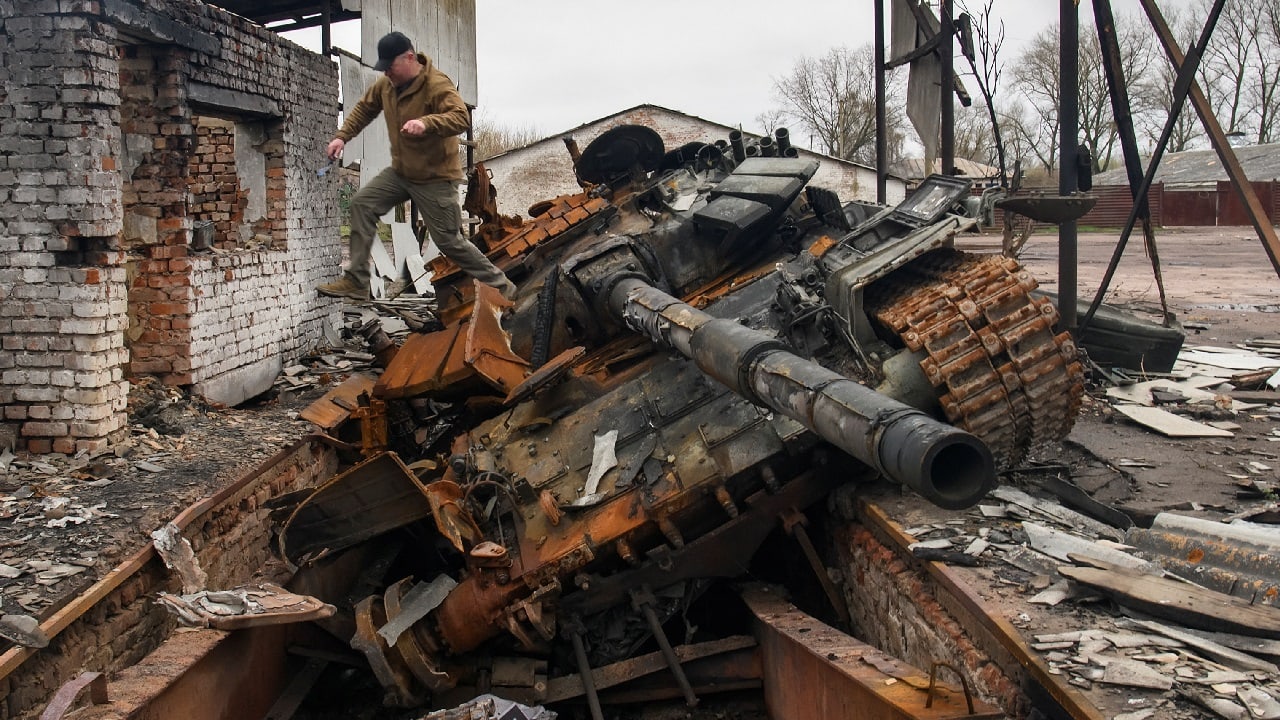As the Ukraine war grinds into its fifth month, it is increasingly unclear what Russia could possibly win which might justify the massive costs it is incurring for its invasion. Conquest is supposed to pay, otherwise war is irrational. Yet after just a few months, it is obvious that a cost-benefit analysis of the war is negative and trending worse for Russia. But Russian President Vladimir Putin is disinterested in peace talks. At this point, he appears to be fighting the war simply for prestige – to prove that Russia is still a great power. This is ironic, because the war itself is destroying Russia’s very claim to be a great power.
Devastated Conquests Don’t Pay
In eastern Ukraine, Russia is finally making progress. It is conquering territory. It appears close to fully capturing Luhansk and Donetsk, the Donbas territories Russia claims are independent countries. And Russia controls much of Ukraine’s coast. So Putin might soon be able to declare a kind of ‘victory.’
But this is success in only the most basic, blunt-force way. It is true that Russia now controls a bit more territory than it did before, and that territorial control is a zero-sum game because there is only so much land-space in the world. Russia now controls more than it did in February, which is a success of sorts. But this victory has otherwise been very limited.
Russia expected to defeat Ukraine quickly and, possibly, occupy much of the country. Instead, its territorial gains are narrow and vulnerable to counter-attack. And the conquered territory itself is devastated. Russia has pounded the ground it is taking with relentless air and artillery strikes. The physical infrastructure in these areas is being destroyed and the population killed or driven off.
Occupying these conquests will be expensive, because a major military or police presence will be needed to prevent revolts. (Ukraine was a hotbed of resistance to both the Nazis and Soviets.) Reconstruction, in order to extract any economic value from these spaces, will be another drain. Most of the world will not recognize these conquests as Russian territory. This means investment and trade will be minimal. Business will also be deterred by the ruined infrastructure. Nor will economically productive people move into such conflict-ridden regions. Only the old and frail will likely stay.
In short order, these conquered areas will require subsidization from the Russian government to survive. This has been a pattern in other Russian ‘frozen conflicts.’ They become an expense and a burden. This is not a sustainable model of expansion, nor is it conquest that pays.
On top of these costly conquests are the wider economic ramifications of the war. The invasion will isolate Russia from the Western economy for decades. Even if gas purchases are eventually restored, the West will slowly disentangle itself from Russia. Western companies will not return; sanctions will linger; access to Western banking will sharply contract, along with access to international financial institutions like the IMF; travel to the West for leisure and education will become much harder; critical imports and technologies will be cut off; dependence on China will skyrocket. These costs are scarcely felt now, but over the medium-term, they will noticeably reduce Russian growth and worsen its brain drain. If Putin stays in charge, Russia will slide into Soviet levels of isolation from the rest of the world.
Wars for Prestige are a Terrible Idea
By the material benchmarks sketched above, the war is a disaster for Russia. The value of its territorial acquisitions is low, probably negative, given the devastating nature of these spaces due to Russian shelling and the ensuing political-economic limbo they will fall into as unrecognized conquests. These realities would counsel Russia to stop the war, and there seems to be some dissent in the Kremlin around these points.
But Putin marches on, suggesting that the war is not about any particular valuable conquest anymore, but victory for its own sake. This is an awful reason to fight a war. Ignoring the material balance of costs in pursuit of a victory for prestige is a proven means of sliding into an unwinnable quagmire. This is quite close to the logic of the US in the later stages of the Vietnam War.
In that conflict, much of the US national security establishment recognized that the war could not be won at reasonable cost – without, for example, invading North Vietnam or nuking it. Henry Kissinger apparently felt this way as early as 1966. Yet President Lyndon Johnson did not want to be the first American president to lose a war, and his successor, President Richard Nixon, wanted an elusive ‘peace with honor.’ American credibility was at stake.
The reason to keep fighting became, in a circular logic, because the US was already at war. Winning became the point of winning, not any identifiable material or strategic goal. Both Johnson and Nixon became so vested in the conflict that they struggled to move on from it, generating enormous political tension at home, alienating allies abroad, and igniting economic problems which led to the troubles of the 1970s.
Putin is probably sliding into this dilemma. He started the war. Victory or defeat reflects on him. And Russia’s perception as a great power could be damaged by a stalemate in the war – even as the war itself undercuts Russia’s claim to be a great power by illustrating the myriad inadequacies of its military and costs piling up on the Russian economy.
Just as the US kept fighting in Vietnam for the specter of credibility, so, likely, Putin will keep fighting in Ukraine. The material costs of the war are increasingly irrelevant to him, which will only make them that much worse in the end.
Dr. Robert E. Kelly (@Robert_E_Kelly; website) is a professor of international relations in the Department of Political Science at Pusan National University. Dr. Kelly is a 1945 Contributing Editor as well.

